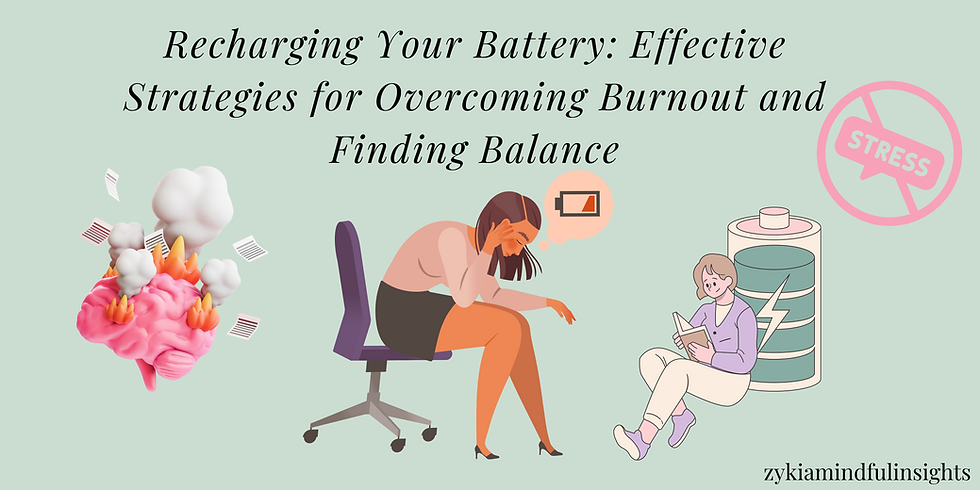
Positive Self Talk: Why Is It Good For You?
- Zykia Hannah

- Apr 29, 2020
- 3 min read
What is positive self-talk?

Self-talk is your internal dialogue. It’s influenced by your subconscious mind, and it reveals your thoughts, beliefs, questions, and ideas.
Self-talk can be both negative and positive. It can be encouraging, and it can be distressing. Much of your self-talk depends on your personality. If you’re an optimist, your self-talk may be more hopeful and positive. The opposite is generally true if you tend to be a pessimist.
Positive thinking and optimism can be effective stress management tools. Indeed, having a more positive outlook on life can provide you with some health benefits.
If you believe your self-talk is too negative, or if you want to emphasize positive self-talk, you can learn to shift that inner dialogue. It can help you be a more positive person, and it may improve your health.
Why is it good for you?
Self-talk can enhance your performance and general well-being. For example, research shows self-talk can help athletes with performance. It may help them with endurance or to power through a set of heavy weights.
Positive self-talk and a more optimistic outlook can have other health benefits, including:
increased vitality
greater life satisfaction
improved immune function
reduced pain
better cardiovascular health
better physical well-being
reduced risk for death
less stress and distress
How does it work?
Before you can learn to practice more self-talk, you must first identify negative thinking. This type of thinking and self-talk generally falls into four categories:
Personalizing. You blame yourself for everything.
Magnifying. You focus on the negative aspects of a situation, ignoring any and all of the positive.
Catastrophizing. You expect the worst, and you rarely let logic or reason persuade you otherwise.
Polarizing. You see the world in black and white, or good and bad. There’s nothing in between and no middle ground for processing and categorizing life events.
When you begin to recognize your types of negative thinking, you can work to turn them into positive thinking. This task requires practice and time and doesn’t develop overnight. The good news is that is can be done
What are some examples?
These scenarios are examples of when and how you can turn negative self-talk into positive self-talk. Again, it takes practice. Recognizing some of your own negative self-talk in these scenarios may help you develop skills to flip the thought when it occurs.
Negative: I’ll disappoint everyone if I change my mind.
Positive: I have the power to change my mind. Others will understand.
Negative: I failed and embarrassed myself.
Positive: I’m proud of myself for even trying. That took courage.
Negative: I’m overweight and out of shape. I might as well not bother.
Positive: I am capable and strong, and I want to get healthier for me.
Negative: I let everyone on my team down when I didn’t score.
Positive: Sports are a team event. We win and lose together.
Negative: I’ve never done this before and I’ll be bad at it.
Positive: This is a wonderful opportunity for me to learn from others and grow.
Negative: There’s just no way this will work.
Positive: I can and will give it my all to make it work.
How do I use this on a daily basis?
Positive self-talk takes practice if it’s not your natural instinct. If you’re generally more pessimistic, you can learn to shift your inner dialogue to be more encouraging and uplifting.
However, forming a new habit takes time and effort. Over time, your thoughts can shift. Positive self-talk can become your norm. These tips can help:
Identify negative self-talk traps. Certain scenarios may increase your self-doubt and lead to more negative self-talk. Work events, for example, may be particularly hard. Pinpointing when you experience the most negative self-talk can help you anticipate and prepare.
Check in with your feelings. Stop during events or bad days and evaluate your self-talk. Is it becoming negative? How can you turn it around?
Find the humor. Laughter can help relieve stress and tension. When you need a boost for positive self-talk, find ways to laugh, such as watching funny animal videos or a comedian.
Surround yourself with positive people.Whether or not you notice it, you can absorb the outlook and emotions of people around you. This includes negative and positive, so choose positive people when you can.
Give yourself positive affirmations.Sometimes, seeing positive words or inspiring images can be enough to redirect your thoughts. Post small reminders in your office, in your home, and anywhere you spend a significant amount of time.
I really hope all these tips are very helpful for each and everyone of you💘. I also hope that everyone try to use these everyday when they have time 💕.




Comments